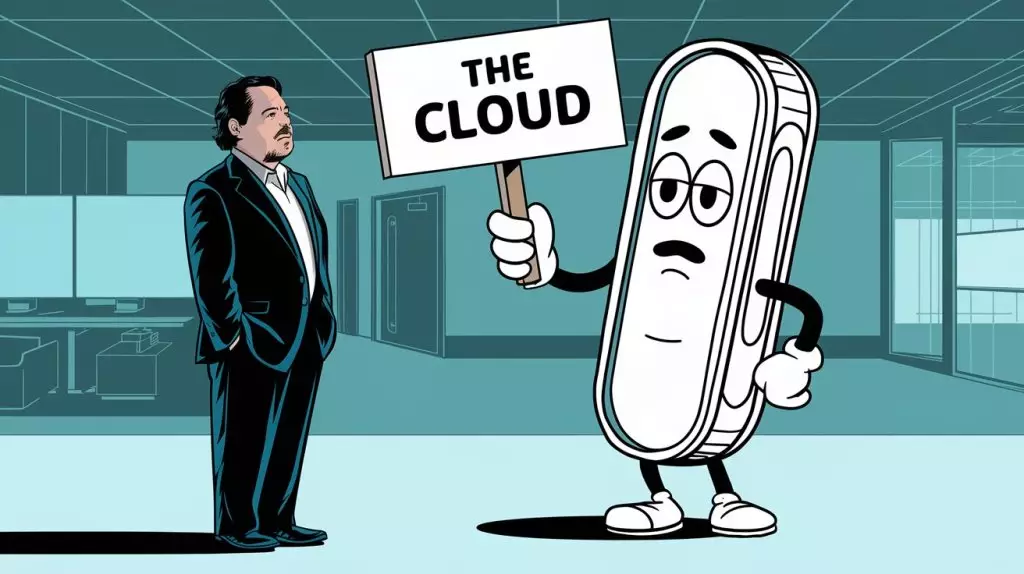In the ongoing narrative of artificial intelligence (AI) integration into everyday business applications, Marc Benioff, co-founder and CEO of Salesforce, has stirred controversy with his recent disparaging remarks about Microsoft’s AI assistant, Copilot. The tenor of his critique raises fundamental questions about the efficacy and reliability of AI technologies, especially as they become increasingly embedded in critical business processes. Describing Copilot as “disappointing” and likening it to “Clippy 2.0” has drawn parallels to the early days of AI assistants, suggesting that despite technological advancements, executing the promise of AI often remains elusive.
Benioff’s comment, drawn from his personal X account, couldn’t have been more pointed: “It just doesn’t work, and it doesn’t deliver any level of accuracy.” This blunt assessment is a vivid reminder of Clippit, Microsoft’s erstwhile assistant, which became synonymous with user frustration due to its recurrent interruptions and irrelevant suggestions. Although AI has grown exponentially more sophisticated since the 1990s, Benioff’s criticisms indicate a lingering skepticism regarding its practical applications, particularly within Microsoft’s ecosystem.
A critical examination of Benioff’s remarks reveals not only a product review but also an intricate web of competitive rivalry between Salesforce and Microsoft. With Salesforce’s suite of Customer Relationship Management (CRM) tools directly competing against Microsoft Dynamics 365, it’s essential to acknowledge the potential biases in Benioff’s criticism. His position as a leading figure in an alternative software market suggests that his dissatisfaction with Copilot may come with a vested interest: promoting his own company’s AI initiatives.
Salesforce’s recent rollouts of AI features and applications position the company as a contender in the AI race, making Benioff’s critique more than just an opinion—it’s a strategic positioning aimed at influencing public perception as well. However, the issue stems from the broader applicability of AI in business rather than simply a technical shortcoming of Copilot. His criticisms challenge other AI frameworks that might also fall short of user expectations, highlighting a recurring theme: the gap between AI’s hype and its real-world performance.
Adding a layer of complexity to this discussion, Benioff has recently oscillated between championing AI’s potential and expressing skepticism about its current capabilities. In one breath, he acknowledges the revolutionary aspects of AI technologies; in another, he declares that claims of AI curing diseases or solving significant global crises are grossly exaggerated. This dichotomy poses questions regarding the overall landscape of AI advancement: Is the enthusiasm for AI applications warranted, or are we merely caught up in the fervor without substantial results?
This contradiction points to a deeper reflection on leadership in the digital age. Leaders like Benioff, who have the responsibility to guide their organizations through technological advancements, must navigate a complex landscape where AI offers significant promise yet also presents considerable challenges. The tension between recognizing AI’s business utility and criticizing its implementations creates a convoluted narrative that could confuse stakeholders and clients as they seek to understand the best paths forward.
Public Sentiment and Future Movements
Benioff’s critical remarks have not gone unnoticed. Already, some industry experts are interpreting his skepticism as indicative of a movement away from blind enthusiasm for generative AI—a sentiment that has been festering among many observers of the technology landscape. The questioning of AI’s supposed infallibility suggests a shift in public sentiment, one that might foster more robust discussions around accountability, performance, and user experience in AI tools.
As companies like Salesforce and Microsoft continue to refine their AI offerings, the key will be transparency with consumers about what these technologies can realistically achieve. The responsible implementation of AI could be strengthened by these candid dialogues; however, such exchanges will require courage from industry titans to admit shortcomings and utilize such critiques to fuel innovation rather than public relations battles.
Ultimately, Benioff’s commentary embodies the tumultuous intersection of competition, technological aspiration, and public discourse surrounding AI. As the field evolves, the voices of leaders in the tech industry will play a crucial role in shaping how AI is perceived and utilized, influencing the future landscape in ways that are yet to be fully understood.

